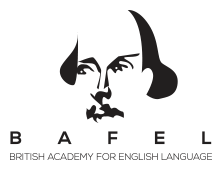Written Word

Expository Writing
SYNOPSIS
The term “exposition” denotes the thorough explanation and description of a particular concept, theory, artefact or process. Hence it is a specific kind of elucidatory discourse, writing or speech whose objective is to expound, to impart information. In this programme, students learn the key ingredients of expository writing by exploring the following- introduction, argument body, conclusion structure, comparison and contrast, forensic analysis and critical review. We go a step further by expanding students’ minds on various newsworthy topics by exposing them to journalistic writing and styles of the Financial Times, The Guardian, New York Times, The Economist and other publications.
OBJECTIVES
- Awareness of how writing is not merely a static restatement of what one knows but also a means of inquiry
- Understand the structure convention of writing
- Identify the problem, or question, they are addressing in their argument.
- Accurately present an established view (or views) of the problem, an existing answer (or answers) to the question raised by the problem.
- Present a convincing flaw (or flaws) in the established view (or views).
- How to use the right tenses, voice and words to make a point
Creative Writing
SYNOPSIS
It begins – has always begun – with a blank page, from stretched goatskin to flickering, ticking cursor. What will you say? How will you press the sound of your voice against that page? This is how words come alive. BAFEL’s programme has been designed to encourage high levels of creativity, initiative and originality in the design, production, interpretation and analysis of creative writing. The programme will offer students the chance to develop their creative prose by looking at fundamentals such as character, description, plot, dialogue, point of view and suspense.
OBJECTIVES
- How to build a plot
- How to develop character and characteristics
- Understand the story structure and curve
- How to use creative words
- Learn to use grammar correctly- voice, tense, punctuation etc.
- How to write a beguiling introduction
- Learn the techniques of dramatic storytelling
Comprehension Skills
SYNOPSIS
Reading comprehension is the ability to read a text and understand its meaning. Very often, students recognise words and sentences but struggle to understand underlying meanings, references, challenging words, points-of-view and the context of the passage. This is where BAFEL’s programme builds students’ awareness of the types of questions that will be asked during a reading comprehension exercise.
OBJECTIVES
- Understand how anaphoric and cataphoric references work
- Understand the types of comprehension skills questions and how to answer them
- How to guess the meaning of a challenging word
- How to paraphrase
- How to speed read
CV & Personal Statement Writing
SYNOPSIS
This powerful programme helps students unravel their innate skills and talent through a short test. This is then followed up by a thorough segment on personal statement writing (see full course description on personal statement writing page) and CV writing. The secret of CV writing lies in knowing what to include, what not to include, and what kind of a spin to put on the CV, to ensure the applicant stands out and not just the document – to give one the very best possible chance of getting the job/university he/she wants. This programme will cover all key aspects of writing a professional, attractive, informative and succinct CV.
OBJECTIVES
- Find out one’s personality traits and inclinations
- How to draw attention to specific skills
- How to use ‘hypnotic’ language effectively
- How not to write fluffy exaggerated lines about one’s abilities
- How to weave a story/narrative into your writing (personal statement)
- Learn the structure, grammar and vocabulary of a personal statement
- How to structure a personal statement and CV
Situational Writing
SYNOPSIS
Situational Writing is a core component of the written segment of the Singapore PSLE English Paper 1. Students will sharpen their skills in reading, writing and comprehension by learning the six-step process of writing both informal and formal letters and e-mails. The programme will include the use of appropriate grammar, effective words and phrases, implementing a fool proof structure, and more importantly how to stand out from other writers who are all working on the same piece of writing.
OBJECTIVES
- Learn the six step process to situational writing.
- Learn core words and phrases which you can use.
- How to use grammar appropriately.
- How to choose the write ‘voice’- active or passive.
- Learn ways to differentiate your writing from your peers.
- Learn how to develop your own writing style.
